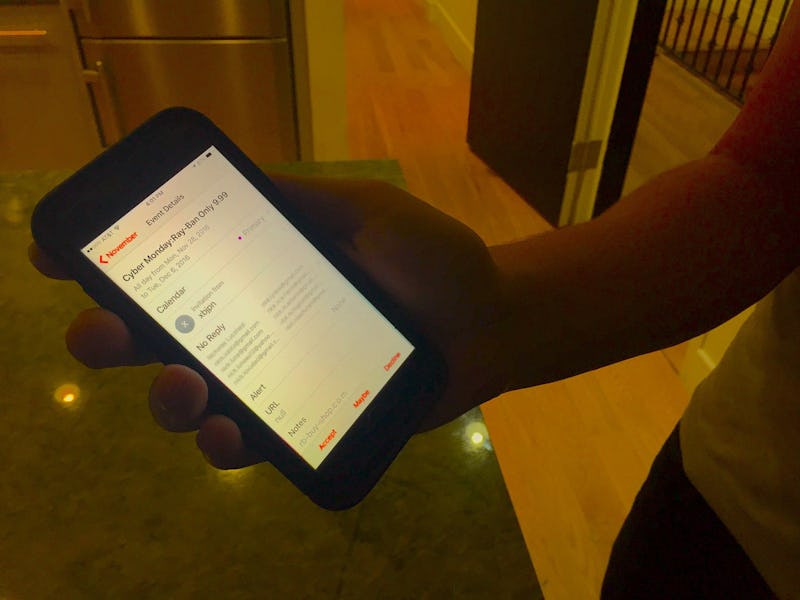Apple Remains Quiet as the iCal Spam Problem Persists
It's the spam problem that won't go away.

Cyber Monday is long over but the deals keep coming — including the spam events hitting the iCloud calendars of untold numbers of iPhone users. A loophole that allows anyone to add a calendar invite with just the user’s email has allowed “9.99 Ray-Ban Spectacular!” spammers to move from Facebook to your iPhone notifications. And as of Wednesday, Apple has failed to address the growing problem.
There are really only three do-it-yourself solutions to the problem right now: turning off the iCloud calendar entirely, turning off notification settings from push to email, or creating a “spam” calendar to redirect the events to. But even these fixes are laden with boobie traps — any time you delete the invitation you’re just notifying the spammers that your account is live and kicking.
Other user suggestions? Swapping iCloud calendar for Google’s calendar or just nixing your Apple service altogether, which might be easier said than done for the millions of consumers that rely on their phone to organize their daily life.
These are the worst.
Even these methods aren’t foolproof, however. As users on the Apple Forum MacRumors have reported, if the invite is sent to a shared calendar, it’s not possible to move it to a spam calendar. This means if spammers get hold of your work email, your whole organization could be screwed.
The nuisance is more of a design flaw than an actual bug, but there are still ways Apple could fix it. For instance, blocking IP addresses of spammers or limiting the number of invitations that can be sent in one day.
Ah yes, a day jam-packed with spam events. Great.
Apple’s lack of response to the problem isn’t unusual for the company. In the past, it has rarely responded to requests regarding bugs or glitches. If previous responses have been any indication, even a fix as simple as the one needed to beat this problem could take months.
UpdateWendWe will update this story if Apple responds to our request for comment.